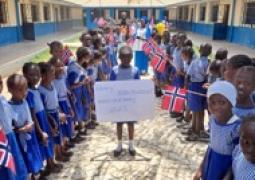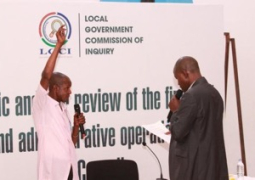In remote communities and urban areas, girls and women in schools, communities and on social media, are demanding more decisive actions, including increased investments and stronger partnerships, to end FGM and scale up the delivery of services for girls and women affected or at risk of the practice.
On International Day of Zero Tolerance for FGM, February 6th, we celebrate our collective achievements in the fight against FGM and reflect on the challenges ahead, including the plight of those girls and women living with the trauma and health complications caused by the practice. We recommit ourselves, through the UNFPA-UNICEF Joint Programme to End Female Genital Mutilation, to the task ahead – to protect every girl and woman from FGM.
We must continue to work together to build on past progress and do more to protect every girl and woman at risk of FGM. The Gambia has registered progress in ending FGM: between 2010 and 2018, FGM among girls aged 0-4 years old dropped by 10 per cent to 27 percent, whilst more women, 49 per cent, are now openly saying FGM should stop. This is a paradigm shift, but for The Gambia tomeet the global target of ending FGM by 2030, efforts must be scaled up at least 10-fold.
The practice of FGM continues to further exacerbate deeply rooted gender inequalities in societies by limiting opportunities for girls and women to realize their rights and full potential in terms of health, education, and income. The perceived values associated with the practice are grounded in socio-cultural and religious misconceptions that continue to obstruct gender equality.
On this Zero Tolerance for FGM Day, we must take action to protect every girl. Let us invest more in programmes that protect girls from harmful practices and provide support services for survivors. Let us invest more in developing, implementing,and enforcing laws and policies that protect girls and women. Let us invest more in building broad partnerships, improving dialogue and consultations, inviting everyone – girls and boys, women and men, parents, community leaders, local authorities, the civil society, law enforcement, religious leaders, development partners and national leaders to act to #EndFGMNow.
We must not rest until the last girl is protected from FGM and until the last knife is dropped.
Launched in 2008 and now in its third phase of implementation, the Joint Programme has helped more than 3.2 million girls and women receive prevention, protection and care services related to FGM, while some 31.6 million people in more than 21,700 communities in 15 countries with high FGM prevalence have made public declarations to abandon the harmful practice.
Read Other Articles In Headlines




